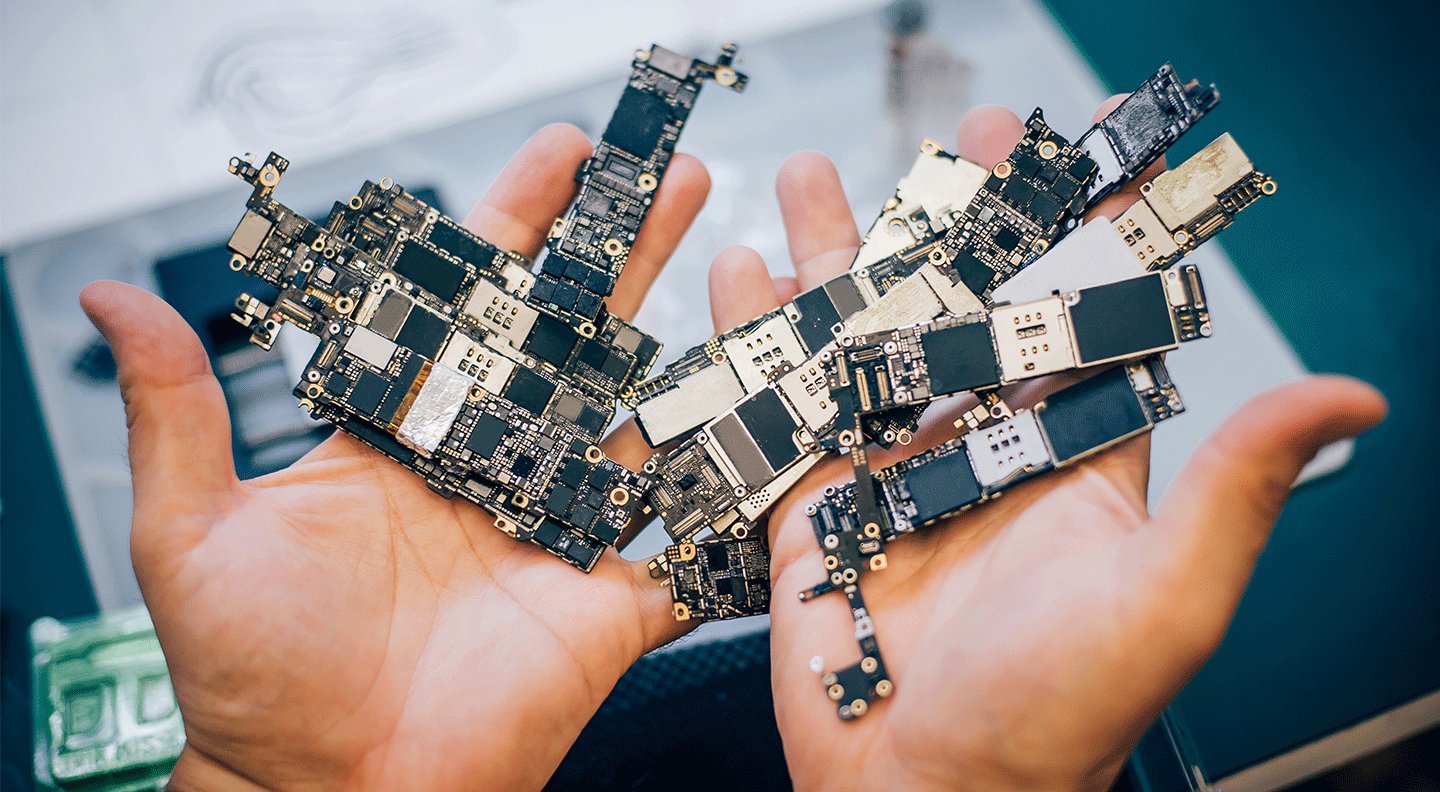Do you have questions about electronics recycling and IT asset disposition? We have had many reach out to us over the years requesting answers on a variety of topics. Here are answers to the most frequent questions received.
1. What is the main obstacle for e-waste collection?
In general, education is an obstacle when it comes to the collection of both consumer and business-related IT and electronic waste. Most consumers are not familiar with electronic waste disposal options available to them, and for those who are familiar with an established program there is generally not much incentive for them to follow it. Therefore, many electronic items end up sitting in storage.
2. What strategies does your company use to collect e-waste?
As a global company, Sims Lifecycle Services works with businesses and data centers to collect their IT and electronic equipment based on their needs. Client specifications are generally based on their level of service, device types, location, quantity, timing and reporting required. Strategically we positioned our global footprint to align with the needs of our clients to make logistics more convenient and cost-effective.
3. What are standard health and safety measures for the IT asset disposition and electronics recycling industry?
The electronics recycling and IT asset disposition process often involves dismantling and sometimes shredding of IT equipment. Since some IT and electronic devices contain hazardous elements many health and safety precautions must be implemented and maintained by recyclers and handlers to ensure the safety of those involved in the process.
Examples of health and safety concerns may include:
- Inhalation of dusts containing unhealthy levels of heavy metals,
- Potential for fires associated with the operation,
- Release of emissions into the environment,
- Hearing damage from high-volume noise levels when shredding, and
- Cuts, scraps or injury when dismantling and handling equipment without proper training and personal protective equipment (PPE).
That industry standards were therefore created to include strong environmental, health and safety considerations. They largely support maximizing reuse and recycling, minimizing harm to human health or the environment, and ensuring safe management of materials by downstream handlers.
Sims Lifecycle Services (SLS) is committed to the ecologically sound and sustainable use of resources and strives to operate in a manner which minimizes waste and prevents pollution. SLS works hard to continuously improve internal health and safety requirements and environmental practices. The full-time environmental health and safety managers at SLS oversee internationally-recognized corporate safety programs in place at all locations.
An overview of the top industry standards and certifications are outlined in our blog here.
4. Are there any IT and electronic items not collected at SLS facilities?
Several electronic items contain hazardous components such as lead, mercury, copper, cadmium, chromium, zinc and other heavy metals. SLS does not collect batteries, liquids, toner cartridges, hazardous materials, cans, bottles, oils, cleaners (liquid), automotive parts, tires, construction type materials, household appliances (microwave ovens, washer, dryer, etc.) and paper.
Here is a full list of IT and electronic items we can manage.
5. What is the proper way to store electronic devices? Can they be stored outdoors?
SLS recommends prompt and responsible disposition of IT and electronic items once they are no longer needed. This will help maximize the value of the device, and ensure all of components and stored data are securely and responsibly managed.
If you need to store a device until you determine a solution for disposition, it is recommended to keep it indoors in a temperature-controlled space. You also want to make sure it is stacked properly. If an item falls and breaks, this could present a risk of hazardous exposure and contamination to the area, as well as limit its chances for reuse.
6. Does your company recycle healthcare equipment?
SLS works with a large amount of healthcare companies globally. However some medical IT devices cannot be accepted. For any questions regarding the disposition of a specific healthcare IT device, we recommend speaking to a representative.
7. What is the process for properly disposing of electronic waste?
When properly retiring end-of-life electronic equipment two choices are available, reuse and recycling. Sims Lifecycle Services’ processes encompass both ends of the spectrum, from identifying the value of electronic equipment for reuse, to saving material from going to landfill by shredding and separating its commodity value. Here is a video we created to explain the process of how electronics are recycled a little bit further.
8. Is it possible to purchase used IT equipment from your company?
Sims Lifecycle Services manages the resale of working IT and electronic units and parts through multiple channels globally. SLS primarily works with a list of buyers directly in addition to various online resale platforms.
9. How can I find information about policies you follow in recycling or sustainability?
Information regarding global policies and initiatives can be found in our newsletter. RESOURCE, a regularly distributed newsletter from Sims Lifecycle Services, shares relevant industry information allowing companies to make better decisions about effectively handling retired electronics and IT assets. We strive to better inform companies to enable them to align their IT asset disposition programs with corporate compliance, data security and sustainability programs. This newsletter also provides updates on international policy initiatives. Subscribe here.
10. Do you offer tours? Can we schedule a tour of the facility?
We applaud everyone with interest in electronics recycling. Due to corporate compliance practices, we are unable to offer tours to the general public. To get more familiar with our equipment and facilities, we encourage you to view videos about our process.
If you have a specific question that we did not answer, please reach out to us and we will do our best to answer accordingly.
